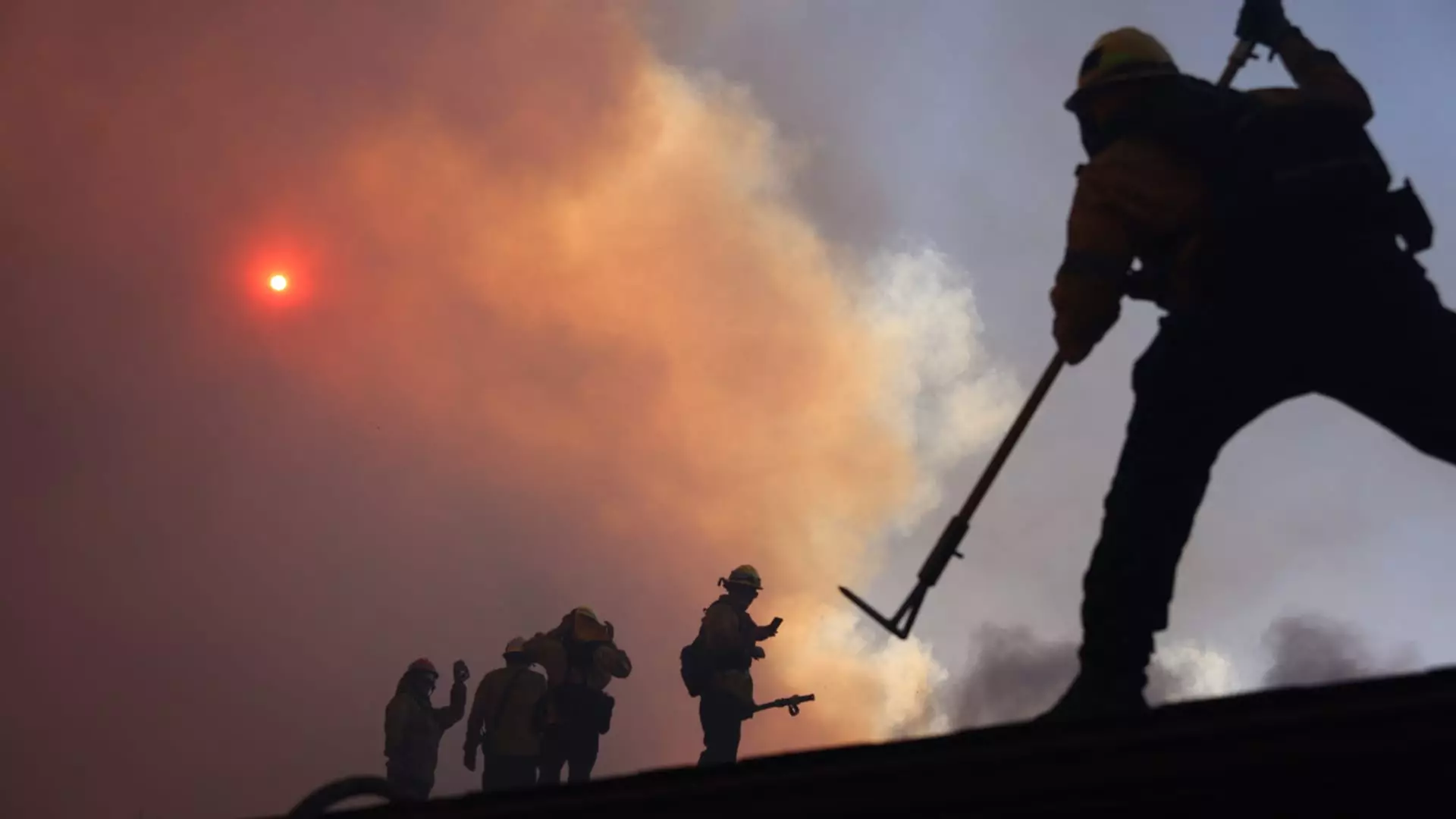Recent wildfires in Southern California, particularly around the Los Angeles area, have wreaked havoc, leading to a grim assessment of the situation. At least five lives have been lost, over 100,000 residents have been mandated to evacuate, and around 2,000 properties, including homes and businesses, have succumbed to the flames. The heartbreaking images of destruction resonate across the nation, prompting a wave of altruism among citizens eager to provide assistance. In these harrowing times, though, the potential for generosity to be exploited rises significantly, making it crucial for donors to remain vigilant against fraud.
The obliteration witnessed by the communities affected by these wildfires has activated a compassionate response, as people far and wide look for ways to contribute. Monetary donations and emergency supplies are in high demand, yet the burgeoning necessity of caution in charitable giving cannot be overstated. Herein lies the dilemma: how do well-intentioned individuals ensure their contributions go to legitimate causes?
Organizations dedicated to evaluating charities, such as Charity Navigator, have stepped in to mitigate this confusion. They have compiled a robust list of reputable nonprofits that are involved in relief efforts for those impacted by the fires in the Pacific Palisades and adjacent areas. Their due diligence highlights the importance of supporting established organizations rather than individual crowdfunding campaigns, which may lack the necessary structure and accountability.
Identifying Trusted Organizations
Michael Thatcher, the CEO of Charity Navigator, emphasizes the importance of well-established charities, stating, “We’ve vetted the organizations that are there; these are all outstanding.” Organizations like the American Red Cross, GlobalGiving, and the Los Angeles Fire Department Foundation are among those recognized for their effective on-ground disaster response.
Laurie Styron, CEO of CharityWatch, echoes this sentiment, encouraging donors to prioritize charities with a proven track record. “It’s best to donate to a highly efficient and experienced charity versus to an individual crowdfunding campaign,” she argues, noting that established groups are typically more adept at distributing aid fairly to those in need.
Donors must take a cautious approach in their philanthropic pursuits, especially during a crisis when emotions can drive impulsivity. Styron advises donors against making hasty contributions. It is essential to pause and verify a charity’s credentials, infrastructure, and commitment to serving those in distress. Researching a charity’s local experience and ensuring it has a well-articulated strategy for aiding fire victims can safeguard against falling victim to ill-intentioned schemes.
Unfortunately, the heightened urgency surrounding disaster relief often manifests as an increase in fraud, making it imperative for donors to adopt proactive measures. Instead of responding to unsolicited requests for donations, establishing a direct connection with a charity through its official website is a more secure approach. Resources like Charity Navigator and BBB Wise Giving Alliance offer vetted directories where potential donors can find legitimate opportunities for support.
Safe and Effective Donating Practices
The Better Business Bureau’s Wise Giving Alliance underscores the importance of performing due diligence before making donations. They advise checking for accreditation and carefully reviewing ongoing crowdfunding initiatives to grasp how postings are vetted and to understand any transaction fees that may impact the charity’s overall efficacy.
As much as the desire to provide immediate assistance is commendable, clear communication from charitable organizations is also vital. Appeals for aid should provide transparent descriptions of how the funds will be allocated, ensuring donors understand the specific programs and relief efforts their contributions will support.
As California grapples with the repercussions of devastating wildfires, communities both near and far exhibit an admirable spirit of solidarity. Yet, the journey of helping requires a conscious effort not just to give, but to give wisely. By being informed and deliberate in their giving, donors can ensure their compassion tangibly benefits those in need, contributing to recovery and rebuilding efforts that reflect true generosity and integrity in the wake of adversity.

